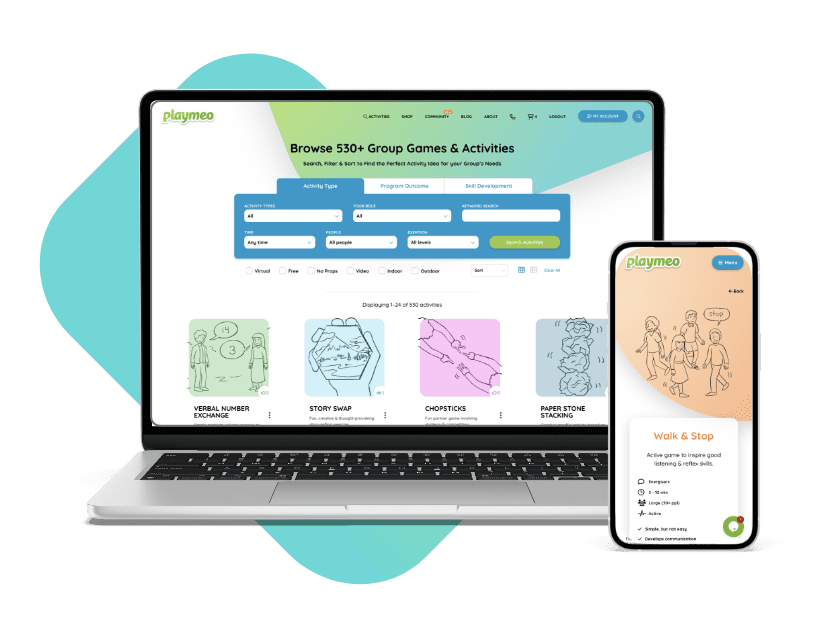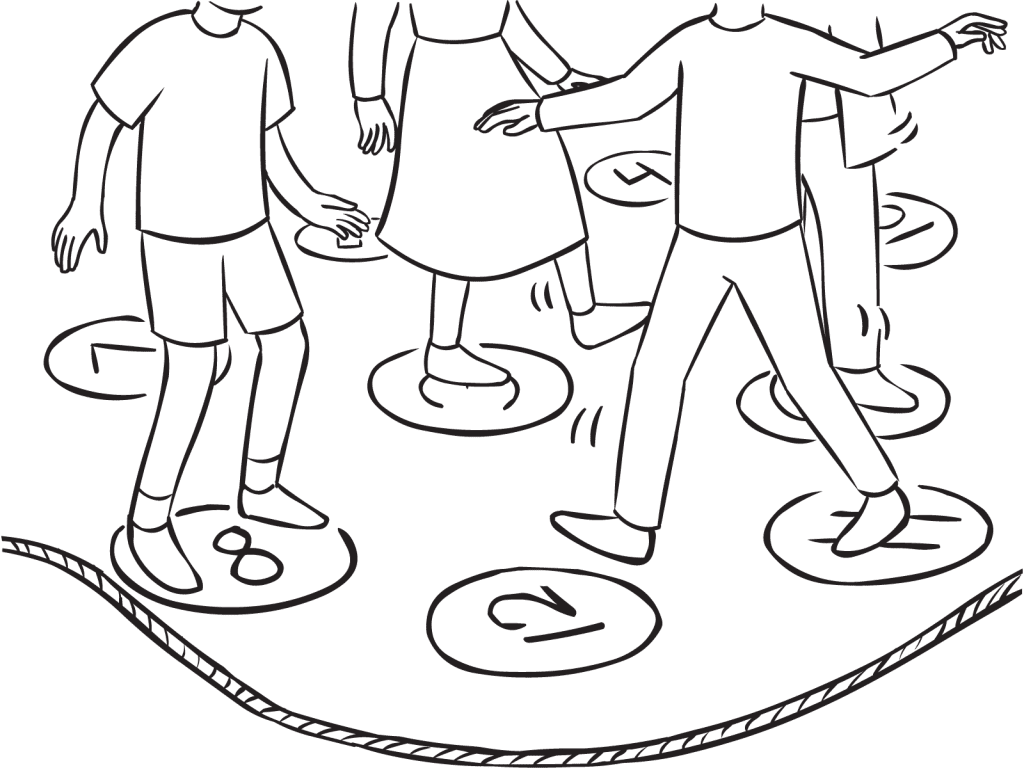Step-by-Step Instructions
Resources Premium
How To Play Narrative Premium
Practical Leadership Tips Premium
Social-Emotional Learning Premium
Health & Wellness Programming Premium
Popular Variations Premium
You Might Also Like... Premium
Useful Framing Ideas Premium
Reflection Tips & Strategies Premium
Source Premium

No Props No Problem
Brand NEW book featuring 150+ outrageously fun group games & activities. Scan QR codes to connect to tons of digital content including video tutorials.
Add to CartNew – TRY BEFORE YOU BUY
NEW – Latest Posts
Free eBook:
Top Ten Icebreakers & Group Games
Top Ten Icebreakers & Group Games
Download our free 28-page ebook jam-packed with outrageously fun activity ideas.

Wow, you’ve been busy!
You can open 1 more
activity for free.
Limit resets every 24 hours
or click below to get unlimited access.








Hey Mark,
Thanks, the activity looks very interesting and am planning to take it up in the upcoming training session in the next week.
I do have a basic question on the activity… As suggested, the participants are supposed to take their places on the spot markers randomly (equal numbers of markers and participants).. The question is – How do i move to 8 from 7 when 7 is already occupied.. And while 7 stays on his marker until 6 does, how does the line move? Do we have one blank marker for navigation to begin with?
Please help me understand this part. Rest, is clear..
Thanks
Malti Lakhani
Thanks for your question, Malti. Like most group initiatives, there are many ways to frame your group’s experience, but typically in this exercise, there are no empty spots. The trick is for the group to coordinate their movements so that everyone moves at the same time. If you need further guidance, let’s arrange a Zoom when it suits you.
I’ve adapted this a little since I contributed it: I split the time the group has into two sets of 10 minutes. In the first ten minutes, the group has a free hand to plan, practice and perform. They are free to do as they wish.
The second ten minutes are “Money Time”. Here, they have 10 minutes or 3 timed attempts – whatever comes first. If they get to the end of 10 minutes and they have not tried any attempt, it’s over. If they use up their 3 attempts in 5 minutes, the same thing – the exercise is over. During the second ten minutes, the group must stand around the perimeter of the circle. The moment anyone enters the circle, by accident or on purpose, the attempt begins.
Rules:
1. Once an attempt begins, all participants must enter the circle and stand on a disc. No one may move until all discs are covered.
2. Once all the discs are covered, all participants move through the discs as described in the instructions.
3. The group gets 5 seconds added to the time whenever anyone exits the circle during the execution of the task.
4. Upon completion of touching all the discs, the group may only exit the circle when all the discs are being stood upon by all the participants.
5. I stop the clock when the last participant exits the circle.
I’ve done away with the rule about not touching anyone else – it over-complicates the task. I don’t allow people to move the numbers.
Debriefing issues include:
– Trust and truthfulness: the facilitator cannot check whether all the numbers have been touched in order. Is every participant performing according to the rules? What’s the cost or benefit to bending the rules or cutting corners?
– Perspective: Generally, during the first ten minutes, all the participants stay inside the circle. Only in the second ten minutes do they get a chance to look at the spread of numbers properly for the first time. Are there patterns that we can follow that we did not see before?
– Impulsiveness: More often than not, someone will step into the circle in the second ten minutes before everyone is ready to perform. Once they enter, they commit the whole group to performing.
Awesome stuff, and I like your adaptations, Neil. Thank you for sharing so generously, it makes a difference to everyone.
I recently had the opportunity to try this out after carrying it around with me for a while. I had a large group of educators, so set up 5 of these and gave each group a stopwatch. I explained the directions to the large group altogether, then gave them 20 minutes to work out their best processes. I love the energy created when small groups are tasked with a problem to solve independently.
The fascinating thing was that each of the 5 groups had a very different approach. One team looked like they were in a blender – crazy chaos, another was very systematic – almost like the metronome variation, you suggested. They didn’t really compete; they were so internally focused. Each group was satisfied with their results and improved their performance. And they noted that school is much the same, each grade level doing their own thing. So, trusting each other to do the job and possibly missing shared learning.
Will use this again.
Great stuff Jen. Such an interesting outcome for you and the groups. Thanks for sharing, it helps elevate everyone’s understanding of how powerful well-sequenced group games & activities can be to help people grow, learn & develop.
I used Pressure Cooker with a corporate group and got great results. A creative answer (if they come up with it) is to move the spots. They were a medical team and I was able to compare the rules (which can be interpreted) to the law (which cannot be interpreted.) just as it is in real life. they got very creative while staying within the few “laws” that they had to follow. great process and learning opportunity. It was a large group (36.) It went very smoothly. Being a medical group, they had their “patients” tested. lol
Susan, this is awesome, thanks for sharing. And wow – a group of 36 people, you must be a talented facilitator because that is way bigger than I would feel comfortable leading 🙂